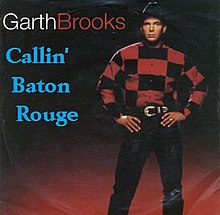
Charles Samuel Bush is an American mandolinist who is considered an originator of progressive bluegrass music. In 2020, he was inducted into the International Bluegrass Music Hall of Fame as a member of New Grass Revival. He was inducted into the Hall of Fame a second time in 2023 as a solo artist.

New Grass Revival was an American progressive bluegrass band founded in 1971, and composed of Sam Bush, Courtney Johnson, Ebo Walker, Curtis Burch, Butch Robins, John Cowan, Béla Fleck and Pat Flynn. They were active between 1971 and 1989, releasing more than twenty albums as well as six singles. Their highest-charting single is "Callin' Baton Rouge", which peaked at No. 37 on the U.S. country charts in 1989 and was a Top 5 country hit for Garth Brooks five years later.
Patrick Flynn is an American guitarist, singer, and songwriter, best known for his association with New Grass Revival from 1981–89.
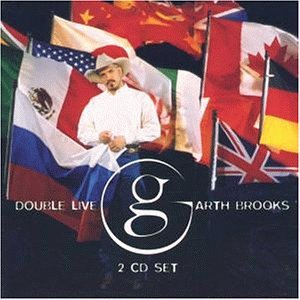
Double Live is the first live album by American country music singer Garth Brooks. It was released on November 17, 1998, and is a two-disc compilation of live songs, recorded during Brooks's 1996–98 world tour.
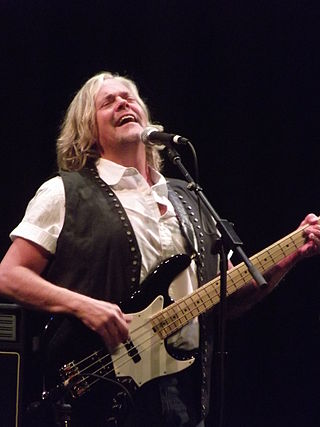
John Cowan is an American soul music and progressive bluegrass vocalist and bass guitar player. He was the lead vocalist and bass player for the New Grass Revival. Cowan became the band's bassist in 1972 after the departure of original bassist Ebo Walker and was noted as being the only member of New Grass Revival not to come from a bluegrass background.

Hold to a Dream is an album by the progressive bluegrass band New Grass Revival, released in 1987. The lead single "Unconditional Love" reached number 44 on the Billboard Hot Country Singles & Tracks chart. In 1988, "Can't Stop Now" reached number 45. The band supported the album by playing shows with Nanci Griffith. Pat Flynn wrote three of the album's songs. "How About You" is a cover of the Jesse Winchester song.

Sevens is the seventh studio album by American country music artist Garth Brooks. It was released on November 25, 1997, and debuted at #1 on the Billboard 200, and on the Top Country Albums chart. To date, it is Brooks' last studio album to be certified diamond by the RIAA. The album also topped the Country album charts in Britain for several months and crossed over into the mainstream pop charts. His duet with Trisha Yearwood, "In Another's Eyes", won the Grammy Award for Best Country Collaboration with Vocals at the Grammy Awards of 1998. Sevens was nominated for the Best Country Album Grammy the following year.
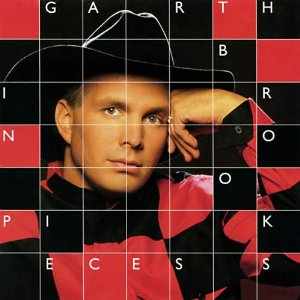
In Pieces is the fifth studio album by American country music artist Garth Brooks. It was released on August 31, 1993, by Liberty Records. It debuted at #1 on the Billboard 200 and the Top Country Albums chart.

"One Night a Day" is a song recorded by American country music artist Garth Brooks. It was released in May 1994 as the fourth single from his album In Pieces and also appears on The Limited Series. A live version of the song appears on The Road album in Brooks' 2016 box set, The Ultimate Collection. The song was written by Gary Burr and Pete Wasner. This song, predominantly featuring the piano and saxophone, is noted for its unique jazz stylings.

Friday Night in America is a studio album by progressive bluegrass band New Grass Revival, released in 1989. The album includes the single "Callin' Baton Rouge", the band's only Top 40 hit on Hot Country Songs. Both it and "Do What You Gotta Do" were later released as singles by Garth Brooks: the former in 1993 from his album In Pieces, and the latter in 2000 from his album Sevens. The band promoted the album by touring with Emmylou Harris.
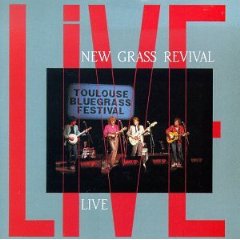
Live is a live album by New Grass Revival, recorded on June 3, 1983, during the first bluegrass festival in France, Toulouse Bluegrass Festival, and released in 1984. It was the first New Grass Revival album to include Béla Fleck and Pat Flynn.
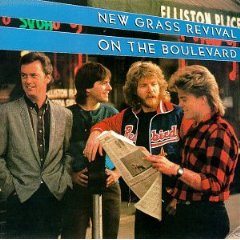
On the Boulevard is the sixth studio album by the progressive bluegrass band New Grass Revival, released in 1984. It is the first of four studio albums from the group's last lineup.

Anthology is a 1990 compilation album by progressive bluegrass band New Grass Revival.

Grass Roots: The Best of New Grass Revival is a compilation album by the progressive bluegrass band New Grass Revival, released in 2005.

New Grass Revival is the seventh studio album by the progressive bluegrass band New Grass Revival, released in 1986.

Best of New Grass Revival is a 1994 compilation album by progressive bluegrass band New Grass Revival. The cuts feature the 1981–1989 lineup of the band. A second compilation was released in 2005 under the title Grass Roots: The Best of the New Grass Revival featuring this lineup as well as earlier band members.
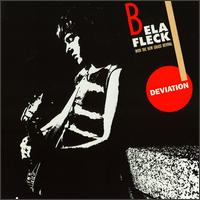
Deviation is an album by American banjoist Béla Fleck, released in 1984. It was recorded with the second classic line-up of the New Grass Revival, consisting of Béla Fleck, Sam Bush, John Cowan and Pat Flynn. The album was dedicated to the memory of Steve Goodman.

"Do What You Gotta Do" is a song written by guitarist Pat Flynn and recorded by New Grass Revival for their 1989 Capitol album Friday Night in America. The song was also recorded by American country music artist Garth Brooks. It was released in January 2000 as fifth and final single from the 1997 album Sevens. The song reached number 13 on the U.S. Billboard Hot Country Singles & Tracks charts and peaked at number 18 on the Canadian RPM Country Tracks chart.
The Garth Brooks World Tour was a concert tour by American country music artist Garth Brooks from 1993–1994. Spanning ten countries in less than two years, it was Brooks' most travelled tour to date, and his third concert tour. It launched in support of his 1993 album, In Pieces, and visited many cities throughout North America, Europe, Oceania, and South America.
The Garth Brooks World Tour was a concert tour by American country music artist Garth Brooks. Launching in support of Brooks' albums, Fresh Horses (1995), and later Sevens (1997), the tour followed Brooks' 1993–94 tour and also featured appearances by Trisha Yearwood. The tour ran from March 12, 1996, to November 22, 1998, for a total of 344 concerts. Even though this was Brooks' final concert tour before his retirement in 2001, it drew record-breaking crowds in North America, two places in Ireland, and one place in South America, becoming the third-most attended concert tour of all time, as well as one of the decade's highest-grossing concert tours.
